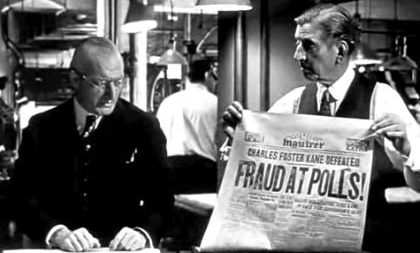A single issue dominated the Democratic gubernatorial race this past week. It’s an issue that’s way, way, waaaaaay down on my priority list for this campaign.
Corporate contributions.
I know, I know, “corporate” has become synonymous with “evil” in Vermont liberal circles, and “corporate contributions” synonymous with “evil money in politics.” Let me explain, please.
There is a severe problem with money in American politics. Some of this is corporate, a lot of it comes from the pockets of our richest citizens. Bernie Sanders has made campaign finance reform one of the centerpieces of his presidential campaign, and I applaud him for that.
Vermont, however, is a different story.
There is precious little corporate cash in our politics. Look: When Dunne returned his corporate contributions, he lost $16,000. That’s a drop in the bucket; he’s raised more than half a million dollars for his campaign. Minter is now returning $11,000 to corporate donors; her warchest is also somewhere north of a half million.
I do believe there’s too much money in Vermont politics, but there are at least three items that concern me more than corporate largesse.
1. Rich people who can buy their way in. We’ve had a whole string of them, from Rich Tarrant to Lenore Broughton to Bruce Lisman. And, as it happens, Peter Galbraith, who bought his way into the state senate with $50,000 of his own money. His attack on corporate cash is, indirectly, self-serving.
2. Outside cash, some of which is corporate. In 2014, the Republican State Leadership Committee dumped $370,000 into key legislative races — and some of their candidates scored surprise victories. The RSLC has gotten a much earlier start this year, and I don’t doubt they’re going to drop at least $1 million into Vermont this time around. That’s pocket change for the RSLC, but it’s a tsunami of cash in Vermont legislative races.
3. Our completely inadequate public-financing system. It’s too restrictive, and it doesn’t provide enough resources to mount an effective race. As I’ve written before, we should either end the pretense and kill the system, or we should make it an effective tool for underfinanced but worthy candidates.
Corporate contributions have become a cause célèbre for two reasons: the Democratic candidates are scrambling for the Bernie mantle, and this has been Galbraith’s hobby-horse for years.
In terms of the Vermont governorship, there are far more impactful ways to emulate Bernie Sanders. Access to higher education, for one: Vermont’s got a severe problem there. Taxation, for two: Vermont’s tax system (income, sales, property) hits the middle class hardest, and the rich get off easy. Health care, for three: we need to get back on track to single-payer, or come up with another way to guarantee universal access.
For Vermont politicians, corporate contributions are the low-hanging fruit of the Bernie agenda. It wouldn’t be that hard to ban corporate cash in Vermont, because our politicos aren’t that dependent on it. It’d be a lot harder to come up with a plan to make college affordable or provide universal health care access or do the heavy lifting that Governor Shumlin never did to overhaul the tax system.
Dunne released an ethics agenda this past week, and it’s a solid package. I’m glad he’s in favor of an Ethics Commission with teeth, and a block in the revolving door, and a better public financing system. But on the issue of corporate contributions, he only comes across as a Bernie wannabe and a Galbraith copycat. Minter looks even worse, because she’s been trailing both Dunne and Galbraith.
Our gubernatorial candidates would be well advised to stop chasing after the Bernie title, because none of them are Bernie Sanders in terms of policy or personal appeal. Aspiring to Bernie-Lite status is a mug’s game. They should be creating images of their own.
And if they want to earn the electoral appeal of Bernie Sanders, they should do it by advocating policies that will actually make a difference for Vermont voters, most of whom don’t give a rat’s ass who gave how much money to whom.
The Democratic nominee is going to have a hard time beating Phil Scott in November. It’s going to take a believable, appealing, life-altering policy agenda, not a war on corporate money.

Bravo.
Good one. I hope you get to tell this to the demo candidates. Wl
During some ten years in MN, I had experience of their public-financing system. I like it. Every person in the state has the right to contribute $50 (don’t know if they’ve since raised it) to any one or several candidates for state office. The candidates have to appeal to people for contributions; on receiving them, they give the respective voters a receipt to submit to the state government, which in turn mails the voter a check. A perfect solution to the “I don’t want my tax money going to them damn politicians” complaint. Why not here?
“A perfect solution to the “I don’t want my tax money going to them damn politicians” complaint. Why not here?”
Good question. It does sound much fairer and, at first meeting, seems to enable candidates to run on their merits and beliefs rather panhandling for cash and who has the larger war chest.